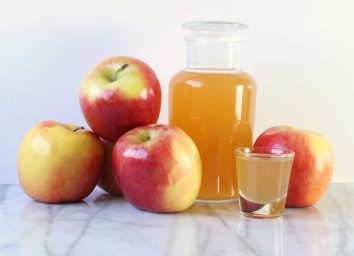5 Surprising Side Effects of Drinking Tomato Juice, Says Science
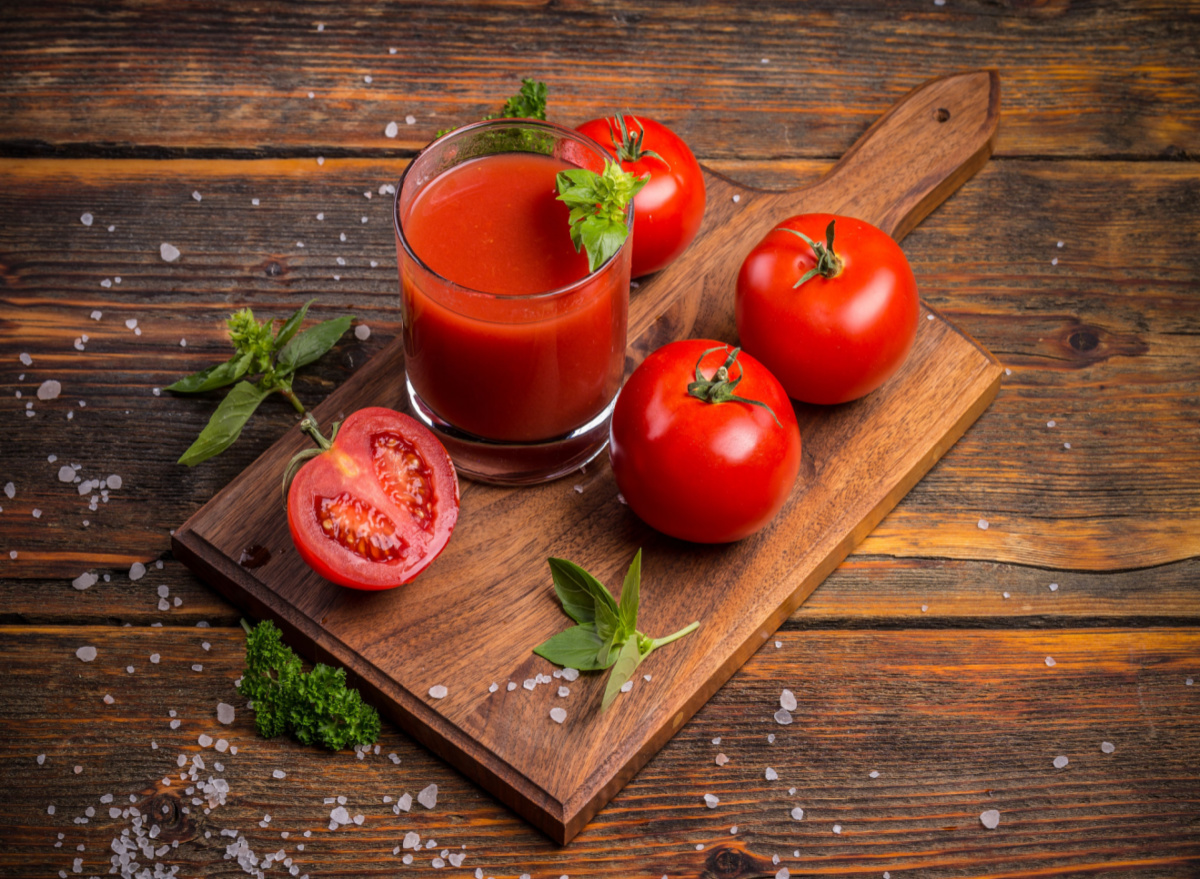
Tomatoes are one of America's favorite vegetables (yes, they are still nutritionally considered vegetables, not fruits). According to the Food and Drug Administration (FDA), tomatoes are one of the 20 most consumed raw vegetables in the United States, along with classics like carrots, iceberg lettuce, onion, potatoes, and sweet corn. Tomatoes can be consumed fresh from the produce section of your grocery store or farmer's market, stewed from a can, sun-dried, frozen as part of a pasta dish, or even juiced.
You could experience more heartburn.
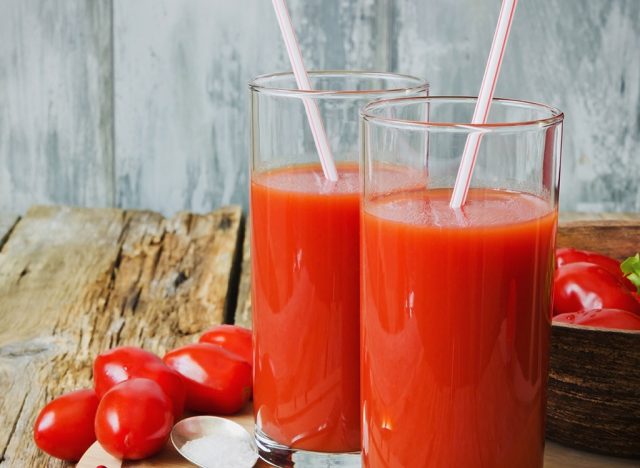
Many of us suffer from gastrointestinal issues, including acid reflux. Acid reflux occurs when stomach contents make their way into your esophagus, namely because of a weak lower esophageal sphincter (LES). This causes indigestion or heartburn. In fact, gastroesophageal reflux disease (GERD) is the most common gastrointestinal disorder, with a prevalence between about 18.1% and 27.8% among Americans. GERD includes frequent episodes of acid reflux. Acid reflux symptoms could be worsened or triggered by too much fat, mint, chocolate, alcohol, caffeine, acidic foods (like tomato juice), or spicy foods.
You will increase vitamin C intake.
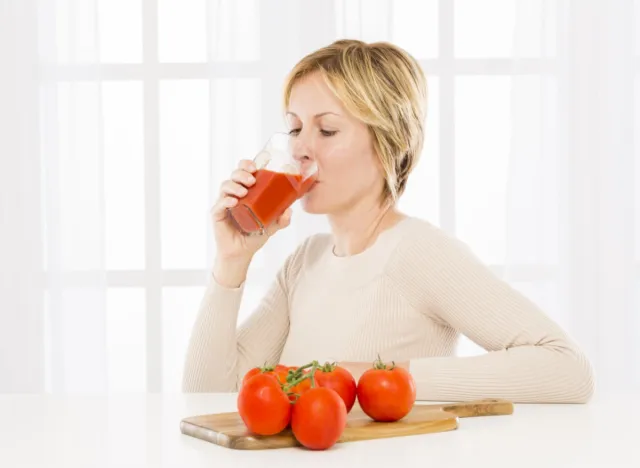
Vitamin C has been popularized for its ability to support immune health; however, vitamin C, also known as L-ascorbic acid, is critical for other key functions in our body. Vitamin C helps build collagen and connective tissue, strengthen capillary walls and blood vessels, increase absorption of iron, and help heal cuts and wounds. That's a ton of work. Tomatoes naturally contain some vitamin C, but most commercially available tomato juices are also fortified with vitamin C (check the label!). The daily recommended dietary allowance (RDA) for vitamin C is 90 milligrams, and many tomato juices include 70-110 milligrams per eight-ounce serving.
You will likely surpass sodium recommendations.
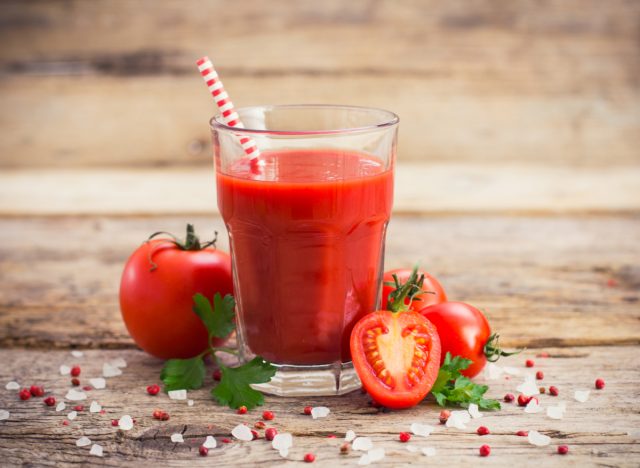
Most vegetable juices, including tomato juice, are high in salt. Added salt acts as a preservative and improves product quality but is also an affordable way to increase palatability. Whether you select a national or store brand, your eight-ounce glass of tomato juice probably offers about 630 milligrams of sodium. However, there are a few reduced sodium (containing at least one-fourth less sodium per serving than its regular reference food), or low-sodium (containing 140 milligrams or less of sodium per serving) tomato juices on the market. Nutrition professionals suggest keeping most meals to around 600 milligrams total sodium and most snacks to around 300 milligrams total sodium.
You will get a serving of vegetables.
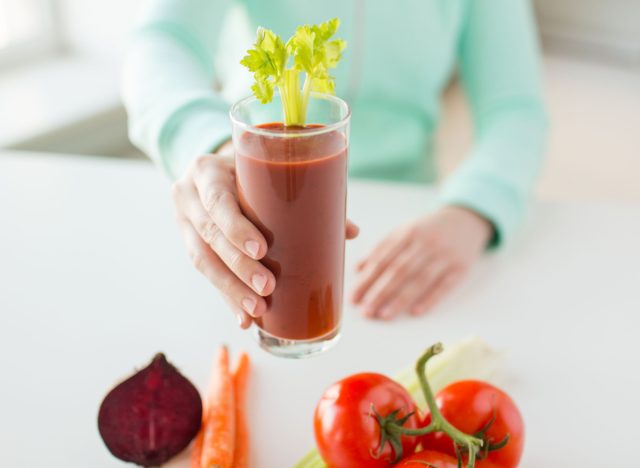
Many of us struggle a little (okay a lot!) with getting adequate vegetables into our diet. Although we should always be striving for vegetables in their "whole form" (whether that is fresh, frozen, dried, or canned), 100% juices can help us achieve recommended intakes. Tomato juices, if they are not tomato "cocktail" or tomato "flavored" drinks, are 100% juice and that counts towards vegetable goals. However, dietitians advise that no more than one serving of vegetables a day be 100% juice.
You may improve prostate health.
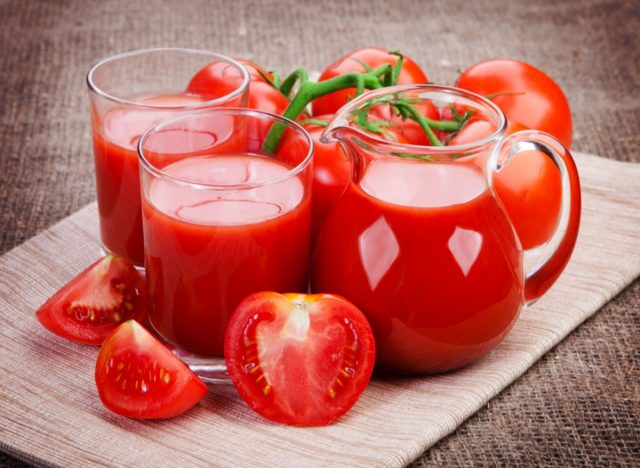
According to 2017-2019 data from the National Cancer Institute, prostate cancer is the second most common form of cancer in men, behind skin cancer. It's predicted that about 12.6% of all men will have prostate cancer at some point in their lifetime. An antioxidant studied for its benefit to prostate health is the carotenoid "lycopene," which is found in red and pink fruits and vegetables like tomatoes, guava, grapefruit, and watermelon.
As suggested in a 2015 meta-analysis in Medicine (Baltimore) and a 2017 systematic review in Prostate Cancer and Prostatic Diseases, lycopene is possibly associated with a reduced incidence of prostate cancer.



